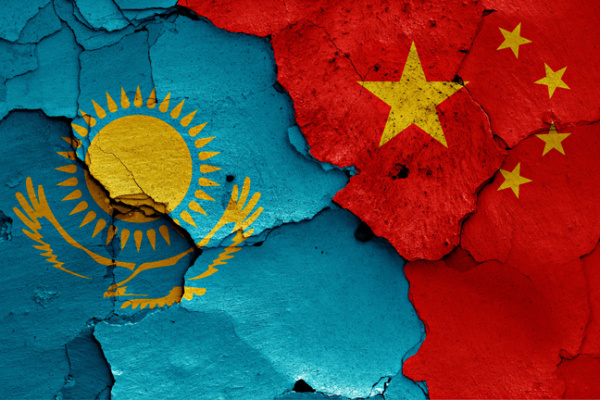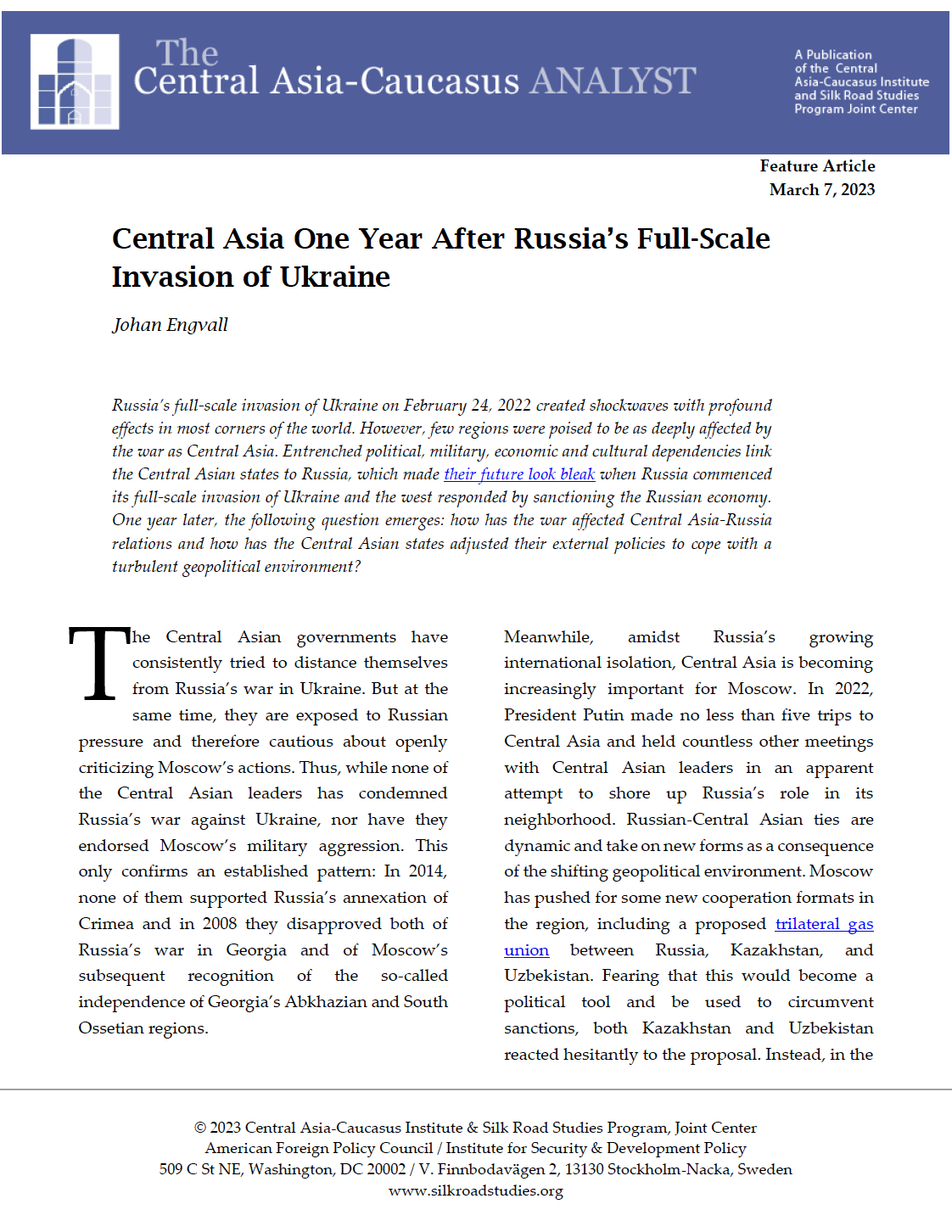With a Potential Deal in Ukraine, Russia Could Also Secure the South Caucasus
By Emil Avdaliani
Since Donald Trump’s return to office, Washington has initiated high-level negotiations with Moscow aimed at ending the conflict in Ukraine. Although the outcome of these discussions remains uncertain, it is increasingly apparent that the U.S. and Russia are moving toward finding common ground on their most contentious disputes. However, U.S. attempts to establish a lasting rapprochement with Russia will likely produce negative implications for Ukraine, undermining its sovereignty, and potentially impacting other borderland areas, notably the South Caucasus, where Russia challenges Western influence.
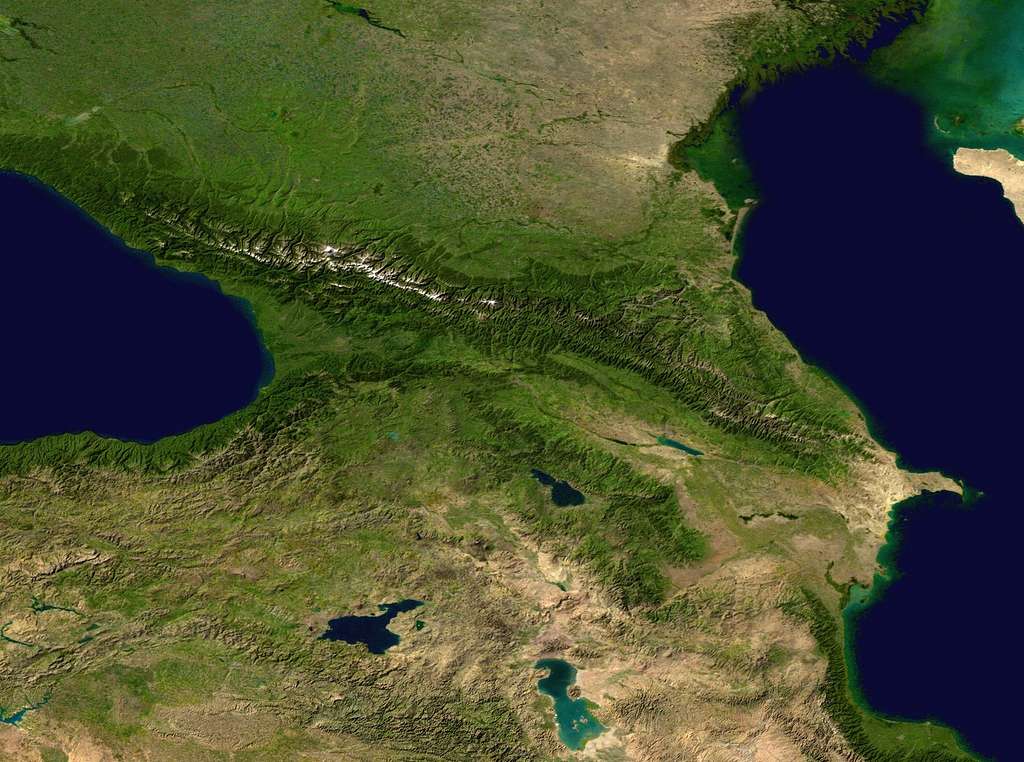
Photo source: NASA.
BACKGROUND: Each of the three South Caucasus countries—Armenia, Azerbaijan, and Georgia—has articulated distinct expectations regarding Trump's presidency. The Biden administration lacked a clear strategic vision for the South Caucasus, with Washington frequently oscillating between emphasizing human rights and democracy promotion (as exemplified by Georgia), and pursuing strategic calculations, such as swiftly signing a strategic partnership with Armenia to deepen the divide between Yerevan and Moscow. Washington's approach towards Azerbaijan similarly blended democratizing objectives with strategic considerations.
Under Biden’s administration, Georgia’s and Azerbaijan’s relations with the U.S. deteriorated, whereas Armenia, aiming to reduce its excessive reliance on Russia, benefited from Washington's policies between 2021 and 2024, culminating in the signing of a strategic partnership agreement in January. Consequently, all three states anticipate enhanced engagement from the Trump administration, with Azerbaijan and Georgia particularly expecting a significant shift toward greater transactionalism and realism in bilateral foreign relations.
Both Tbilisi and Baku have anticipated that under Trump their relations with the U.S. would improve. For example, Tbilisi supported the U.S.-backed UN resolution on Ukraine that diluted Russia’s responsibility for initiating the conflict. Similarly, Azerbaijani President Ilham Aliyev indicated in a statement that “…when President Trump led the U.S., our relationship developed very successfully—unlike the past four years, during which it significantly deteriorated owing to the Biden administration’s unfair and unjust stance toward Azerbaijan.”
IMPLICATIONS: A potential major agreement between the U.S. and Russia regarding Ukraine would likely affect the South Caucasus countries differently; however, the overall outcome may well be characterized by an expansion of Russian influence across the region.
Throughout Russia’s war in Ukraine, Moscow has faced significant challenges in maintaining its influence over the South Caucasus. Other powers, including China, Iran, Turkey, the Arab Gulf states, and even India, have expanded their presence in the region through substantial investments, trade agreements, and enhanced cooperation in security and energy sectors. This development has resulted in a period of regional multipolarity, where no single actor has been able to establish exclusive dominance. Consequently, Armenia, Azerbaijan, and Georgia have increasingly diversified their foreign policies, embracing a multi-vector approach beyond traditional partnerships.
Tbilisi and Yerevan have been notably successful in pursuing this strategy. For example, the Georgian government, while publicly maintaining its aspiration to join the EU, has concurrently signed a strategic partnership with China, enhanced cooperation with the Gulf Cooperation Council, and developed stable relations with Russia, despite the latter’s ongoing occupation of two Georgian regions. Armenia, aiming to reduce its reliance on Moscow, has sought increased military cooperation with India, explored the possible normalization of relations with Turkey, and, most significantly, announced its intention to seek EU membership.
Nevertheless, with a potential agreement on Ukraine, Russia would once again have the capacity to redirect resources into the South Caucasus to restore its weakened position. The Trump administration is unlikely to prioritize the smaller South Caucasus states, instead viewing the region primarily as within Russia’s sphere of influence. This approach aligns with Washington’s broader foreign policy objective of shifting its strategic focus toward the Indo-Pacific. Additionally, the U.S. lacks significant investments in the South Caucasus and shows limited interest in developing the Middle Corridor connecting Azerbaijan and Georgia to Central Asia.
More significantly, the South Caucasus states themselves increasingly perceive momentum shifting in the Kremlin’s favor and appear unlikely to oppose this declining trend. A potential agreement on Ukraine, which would solidify Russian gains, is expected to accelerate this shift toward Moscow. Indeed, Georgia and Azerbaijan have already anticipated such developments; what initially emerged as a policy of appeasement following Russia's invasion of Ukraine in 2022 has since evolved into a understanding that the balance of power in the region favors Russia. This shift partially reflects necessity, as Western powers were—and remain—unlikely to provide meaningful military assistance, while Russia continues to pose a credible threat despite its engagement in Ukraine.
Moreover, Georgia's approach reflects a deliberate foreign policy strategy implemented by the ruling Georgian Dream (GD) party, in power since 2012, aimed at developing a multi-vector diplomatic stance. Integral to this approach is the recognition of Russia's regional influence and a corresponding effort to maintain stable relations with Moscow. Although Georgia and Russia lack formal diplomatic relations, their bilateral economic ties have expanded considerably. Additionally, Tbilisi has subtly indicated declining enthusiasm for NATO and EU membership, both particularly contentious issues from Moscow's perspective.
In contrast, Baku possesses a considerably broader set of tools to counterbalance Russian influence, occasionally resulting in bilateral tensions, as exemplified by the recent incident involving a downed Azerbaijani aircraft. Nevertheless, geographical proximity, significant economic linkages, and Russia's formidable military presence will ultimately compel Azerbaijan toward reconciliation with Moscow. Indeed, signs of rapprochement are already evident through subtle gestures, such as the unveiling of a statue in Moscow honoring Heydar Aliyev, the father of current Azerbaijani President Ilham Aliyev, and Baku's hosting of the 22nd session of the bilateral inter-parliamentary commission.
Even in the case of Armenia, which signed a strategic partnership agreement with the U.S. shortly before Biden left office, it remains uncertain whether Washington will seriously commit to its implementation. Previous experiences are particularly instructive: between 2008 and 2024, Georgia maintained a strategic partnership agreement with the U.S., covering issues such as preparation for a free trade agreement, visa liberalization, and enhanced military and security collaboration. However, few tangible outcomes materialized, suggesting a similar pattern could emerge for Armenia. Early indicators are indeed discouraging, as evidenced by the reported postponement of a planned U.S. delegation visit to Yerevan. Additionally, Armenia's prospects for EU membership remain remote, given Georgia's ongoing difficulties with Brussels and internal disagreements within the EU regarding enlargement. Consequently, these factors will likely prompt Armenia to moderate its stance toward Russia, returning to full-scale cooperation even while maintaining certain aspects of its multi-vector foreign policy.
CONCLUSION: In the context of a potential rapprochement between Russia and the U.S. over Ukraine, the South Caucasus emerges as particularly vulnerable. Moscow would gain an opportunity to reassert its regional influence by filling the strategic vacuum left by an increasingly disengaged Washington. Additionally, Armenia, Azerbaijan, and Georgia are likely to recalibrate their foreign policies to align more closely with Russia. Although this trend has manifested in various forms over recent years, it is expected to accelerate significantly should Moscow successfully conclude its engagement in Ukraine.
AUTHOR BIO: Emil Avdaliani is a professor of international relations at the European University in Tbilisi, Georgia, and a scholar of Silk Roads. He can be reached on Twitter/X at @emilavdaliani.
The Informalization of CIS and Formalization of EEU: Russia’s Strategy to Maintain Leverage in its Neighborhood
By Farkhod Tolipov
January 25, 2024
On December 25-26, 2023, two summits were held in Saint Petersburg: the Eurasian Economic Union (EEU) summit and the so-called CIS informal summit. They can be regarded as a joint summit of two organizations with similar goals. In fact, in its attempt to prevent the fate of a fading empire, Moscow seeks to resort to its soft power instruments and create a semblance or entourage of collectivity around Russia. In the context of its war in Ukraine and frequent unfriendly and threatening statements towards its neighbors, the Kremlin’s artificial collectivity looks like a disguise of its loneliness.
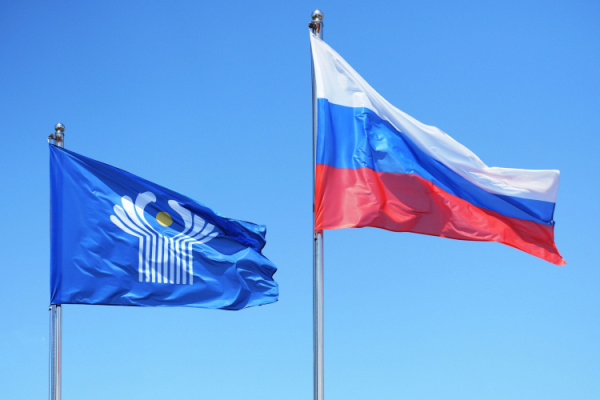
Russia's Weakened Influence in Central Asia and the Caucasus
By Alexander Yeo and Emil Souleimanov
July 6, 2023
Russia has long been a regional hegemon, able to actively exert hard and soft power over many of its neighbors, the Central Asian and South Caucasian states among them. However, since the start of Russia’s full-scale invasion of Ukraine, this influence has weakened, with military and economic resources being diverted to an increasingly protracted and unpredictable war effort. This has led to a shift in regional power balances, as showcased by Azerbaijan’s ascendancy in the South Caucasus, as well as economic challenges including the difficult choices faced by the allies of an increasingly isolated Russia.
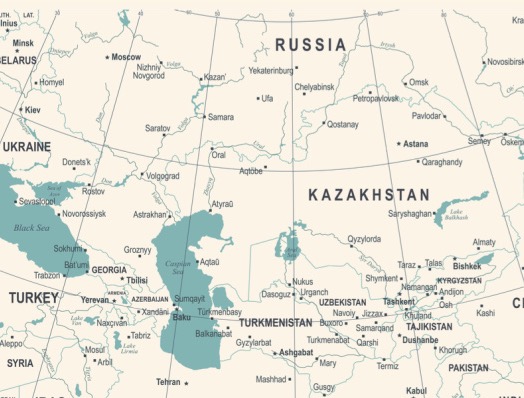
Central Asia One Year After Russia’s Full-Scale Invasion of Ukraine
By Johan Engvall
March 7, 2022
Russia’s full-scale invasion of Ukraine on February 24, 2022 created shockwaves with profound effects in most corners of the world. However, few regions were poised to be as deeply affected by the war as Central Asia. Entrenched political, military, economic and cultural dependencies link the Central Asian states to Russia, which made their future look bleak when Russia commenced its full-scale invasion of Ukraine and the west responded by sanctioning the Russian economy. One year later, the following question emerges: how has the war affected Central Asia-Russia relations and how has the Central Asian states adjusted their external policies to cope with a turbulent geopolitical environment?
China Backs Kazakhstan Against Russian Threats
By Natalia Konarzewska
January 12, 2023
During his visit to Kazakhstan on September 14, China’s President Xi Jinping asserted that China supports Kazakhstan’s territorial integrity and independence, and opposes any interference in Kazakhstan’s internal affairs. Xi's remarks sounded like a thinly veiled warning to Russia. Moscow has ramped up its aggressive rhetoric against Astana over its refusal to support Russia’s military invasion of Ukraine, which Kazakhstan has interpreted as a possible Russian threat to its territorial integrity. China’s explicit support for Kazakhstan should also be considered against the backdrop of Russia’s recent military defeats in Ukraine, which have exposed multiple military weaknesses.
